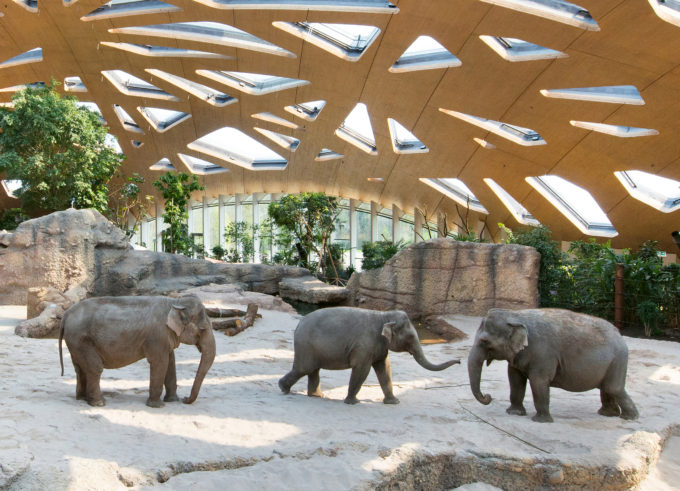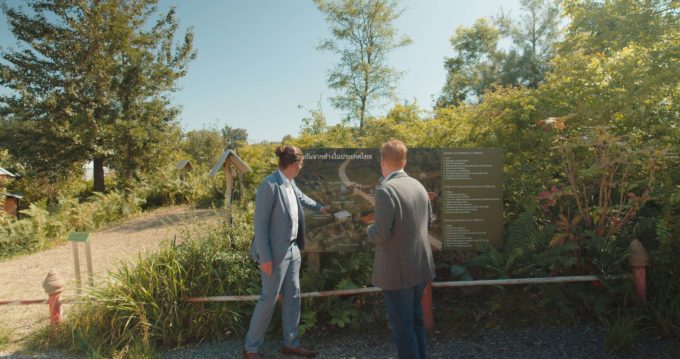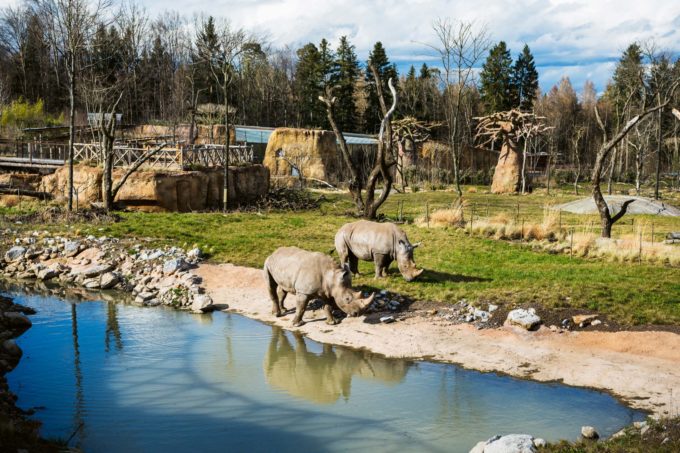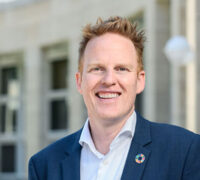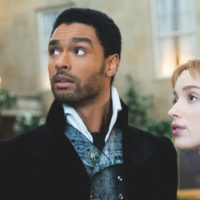For him, such work addresses the elephant in the room: zoos are controversial. Zurich Zoo, located on the Zürichberg, in the city’s Fluntern quarter, houses 6.000 individuals over 27 hectares. Some people take a dim view of keeping free-ranging animals in captivity. Organizations such as Freedom for Animals, the new director of the Aspinall Foundation, and the Born Free Foundation are campaigning for zoos to one day be abolished.
However, Dressen sees the role of modern zoos changing as they take a more proactive role in tackling the loss of biodiversity, and helping to shape a sustainable coexistence between humans and nature. He points to their research into animals and their natural habitats, and conservation work, protecting endangered species through international breeding programs, and reintroducing animals raised or rehabilitated in captivity into the wild.
“Unfortunately, the number of species threatened by extinction is increasing,” he says. Zoos run reintroduction programs around the world, and Dressen warns: “If zoos didn’t exist, preserving these species, we wouldn’t have any individuals to reintroduce into the wild. So zoos, from a conservation point of view, are more necessary than ever.”
He also stresses their important educational role, most importantly linking the animals you see in a zoo to conservation, and creating employment or volunteering opportunities for the local community. “I’ve never worked in a zoo with such strong ties within society, it’s unbelievable,” Dressen says of Zurich Zoo. “You talk to people [and] they have this sensation of pride to have such a zoo basically within their city. I think that is really unique.”
Worldwide, it has been estimated that zoos attract more than 700 million visitors per year and spend around $350 million annually on wildlife conservation projects. Given the city of Zurich’s population of about 402,000 people, its zoo punches above its weight on a per capita basis compared with global peers. In 2019, visitor numbers at Zurich Zoo fell 4.6% to 1.25 million.
Dressen was appointed director in July 2020 after a multi-stage process with more than 140 applicants. He convinced the board with his strong professional track record and human values. But his appointment came at a time of crisis for zoos around the world. The pandemic lockdowns forced public attractions to shut their doors for a prolonged period. This caused major financial challenges for zoos that depend on a steady stream of visitors to fund their operations.
Zurich Zoo generates 88% of its operating income from visitors, with the remaining 12% coming from the city and canton of Zurich, which are both minority shareholders. The zoo’s daily operating costs amount to CHF 120,000 ($137,000), most of which is due to staffing. Pre-lockdown, the zoo earned around CHF 129,000 ($147,000) per day through ticket sales along with animal sponsorships, sales in gift shops, restaurants, income from events, sponsorships and subsidies. COVID-19 wiped much of that income out almost overnight, but the zoo has made a remarkable recovery and now has daily revenues of around CHF 148,000 ($169,000) per day.
Dressen says the lockdowns heightened the public’s awareness of the importance of humanity’s connection to nature. “Something that we see, especially in these kinds of weird pandemic times, [is] people have a longing of being outside, [of] being in nature,” he says. “We’ve seen that every time after lockdown, people have to get out into green [spaces], especially people who live in the city. A zoo is a perfect place for that.”
Alongside COVID-19, he is focused on a challenge shared widely by leaders of organizations: making operations sustainable, even as it drives up costs for the zoo. “We are a conservation institution, we want to convince our visitors to contribute to conservation, so we have to lead by example,” he says.
Zurich Zoo is climate-neutral. It uses 100% green electricity and produces 98% of the zoo’s heating sustainably, using wood chips from the forest and a heat pump. It offsets the remaining emissions through its conservation work. It also sources local meat and seafood for its restaurants, and 50% of the menu is vegetarian or vegan.
Although this makes operations more expensive, Dressen says it’s necessary to avoid claims of greenwashing: “The margin will be smaller, but it just wouldn’t be credible if you talk all day about animal welfare and conservation and then you sell some cheap meat that has been produced god knows where and has been shipped three times around the world.”
He is clear that communicating such efforts to stakeholders is an important part of his role. “We do such important work, but we obviously rely on the support of society. To [communicate] these sometimes-complex situations, in understandable terms and digestible packages, that’s a challenge that I really enjoy.”

